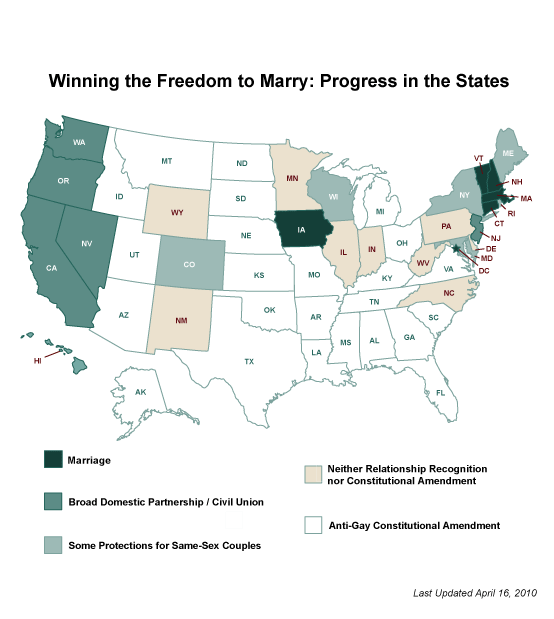Roadmap to Marriage Equality: Beware DOMA!
There is no greater roadblock to marriage equality than the Defense of Marriage Act. Passed in 1996, before any state recognized the right to marriage equality, DOMA does not recognize same-sex marriage on the National level, while allowing states to determine their own acceptance of same-sex marriages performed in states that recognize this right.
acceptance of same-sex marriages performed in states that recognize this right.
Ann Belser of the Pittsburgh Gazette perfectly outlines the confusion and inconsistency of DOMA, “. . . a couple can get married in Massachusetts, drive to New York where they can’t get married but where the marriage is recognized, then pass through New Jersey where they will be considered “˜civilly united,’ before they hit Pennsylvania where the marriage doesn’t exist at all.”
When a couple gets married and commits to a life together it doesn’t usually include a geographical limitation to where you can or cannot plan your future. What about the individual in a same-sex marriage that gets a job offer in Virginia, where they have a Constitutional Amendment against same-sex marriage? Should “Joe GLBT” not take the job if it means that his legal union would no longer be recognized? DOMA creates extreme limits on an individual’s freedoms to simply work and live.
And what of those relationships that don’t work out? The U.S. has one of the highest divorce rates in the world with 3.4 marriages out of 1,000 ending in divorce according to the CDC. With same-sex couples now getting married in greater numbers, it can be expected that some of these will unfortunately not work out. Thomas W. Ude, Jr., a senior attorney for the Lambda Legal Defense Fund points out that to get a divorce, a member of that couple must be a resident of the state where the marriage is recognized. So if “Joe GLBT” took the job in Virginia and they both moved to Virginia, not only would their marriage not be recognized, but they wouldn’t have the right to suspend their marriage where it is legally documented.
Crossing a border should not limit a person’s basic legal rights to love, work and live.
